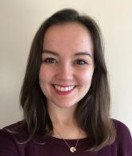Anna Forringer-Beal
Gates Cambridge US Scholarship
From White Slaves to Trafficking Victims: How Historic Perceptions of Migrants Shape Contemporary Anti-Trafficking Policy
Supervisor: Professor Jude Browne (University of Cambridge Centre for Gender Studies)
Abstract:
The White Slavery Panics at the end of the nineteenth century laid the foundation for anti-human trafficking law. However, the connection between these events and contemporary policy has remained elusive. My research examines the legal history behind the UK Modern Slavery Act of 2015 and the US Trafficking Victims Protection Act of 2000 to better understand how early perceptions of immigrants and sex workers impact current policy decisions. Using critical discourse analysis to examine historic anti-trafficking laws and popular white slavery narratives, I investigate the conversation between these two discourses. This reveals a series of legislative decisions influenced by xenophobia that I further explore using critical race and gender theory. These patterns in early human trafficking law carry implications for how we approach anti-trafficking measures today. This work argues to refocus policy using a human rights-based approach that places the needs of trafficking survivors at its centre.
Research Interests:
My research interests include migration studies, decoloniality, critical race theory, human trafficking policy, and queer theory.
Academic Background:
MPhil (Distinction) in Multidisciplinary Gender Studies at Jesus College, University of Cambridge
Bachelor of Arts (High Honors) in Anthropology and Women’s Studies at the University of Michigan
Publications:
J. De León, C. Gokee, and A. Forringer-Beal. “Use Wear, Disruption, and the Materiality of Undocumented Migration in the Southern Arizona Desert”. In Migrations and Disruptions: Unifying Themes in Studies of Ancient and Contemporary Migrations, edited by T. Tsuda and B. Baker, 145-178. University Press of Florida, 2015.
Jenny Carla Moran
AHRC Doctoral Training Partnership /Cambridge European & Newnham College Scholarship
Loveability
Supervisor: Professor Sarah Dillon (Faculty of English, University of Cambridge)
Abstract:
My research is concerned with emerging technologies. I focus on humanoid robots designed for relations of love as a kind of archive of normative assumptions – how should a “loveable” humanoid robot look, move, and respond to the user in order to be accepted, and what does this tell us about how we think about other humans? I take a critical approach to this, problematising instances in which loved, non-living objects become narratively represented as deserving of rights and protection. I am concerned with this narrative positioning precisely because the same care is not directed toward all living beings equally. In my thesis, I propose an alternative colonial hierarchy of liveliness organised by love projected onto living and non-living things.
Biography:
I am an Affiliated Lecturer for the University of Cambridge Centre for Gender Studies, supervising MPhil in Multi-disciplinary Gender Studies students and POLIS undergraduates. I hold a first-class honours BA in English Studies from Trinity College, University of Dublin, and an MA in Postcolonial Studies from SOAS, University of London.
My research interests include decolonial and postcolonial theory, futurism/the “TESCREAL” bundle, affect theory, queer theory, science fiction, intimacy and love, humanoid robot design, posthumanism, anthropomorphisation, and political influences upon what is seen as alive. I use she/her pronouns, I like ghost stories, and I regularly hang out with an extended family of semi-feral cats.


